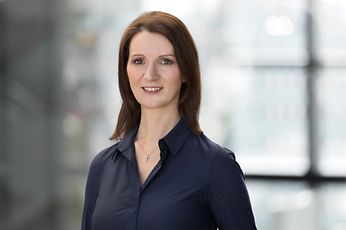IPOs 2018: “A healthy IPO market”
IPOs 2018: “A healthy IPO market”
Renata Bandov, responsible for Pre-IPO & Capital Markets at Deutsche Börse, speaks about the IPO year 2018 in an interview.
Renata Bandov
Based on the issue volume, we had one of the best years for IPOs in Frankfurt since the turn of the millennium – even though some issuers postponed their IPO at short notice in the second half of the year due to the difficult market environment. Nevertheless, we are developing more positively than the global IPO market. The number of IPOs worldwide currently is tending to decline.
The total of 19 IPOs were very different, both in terms of the motives for companies coming to the Frankfurt Stock Exchange and the sectors involved. That speaks for a healthy IPO market. Starting with the two heavyweights Siemens Healthineers and DWS, both of which are spin-offs from DAX corporations, through technology companies such as AKASOL, which want to finance international growth, to Knorr-Bremse, which was primarily concerned with succession planning in a family-owned company.
However, the IPO market in Germany still faces major challenges.
A major challenge remains to improve the conditions in the capital market. The IPO must become more attractive in Germany – also from an investor's point of view. To achieve this, all those involved must work closely together: Politics, associations, investors and companies. Possible measures include, for example, tax incentives for employee shareholdings or venture capital investments through capital collection agencies. Many countries are already further ahead in this respect. Look at the UK or Italy for example, where longer-term investments by private investors with tax advantages are favoured. This has a direct positive impact on the IPO market – and thus on the healthy development of the real economy.
Is the lack of equity culture also a problem?
Compared to other industrial nations, the German equity culture is relatively weak. There are many reasons for this. In our opinion, however, it is not just a question of attracting more private investors to IPOs. The promotion of the equity culture is more holistic and it is first and foremost about dealing with the topic of equity investment and being able to make informed decisions. And to ensure that this is the case, Deutsche Börse is making a considerable effort to impart financial knowledge – currently, for example, with the expansion of the Visitor Centre in the Frankfurt trading hall, a new digital learning platform or the important requirement to include the subject business in the curriculum.
The fundamental understanding of economic relationships and causalities puts us in a position to form our own independent judgement and perhaps to recognise that shares can and should be an important part of our retirement provision and asset accumulation.
What role do private investors play in an IPO?
We think it is important that investors also have the opportunity to be involved from the very beginning of the IPO. No one should be excluded here. We have strengthened the fact that additional investor groups can participate in a share subscription at all with our still relatively young subscription functionality DirectPlace: family offices, semi-professional investors, asset managers but also private investors can now place purchase orders on Börse Frankfurt during the subscription phase via their custodian bank in addition to institutional investors. This in turn is a good opportunity for issuers to expand their investor base.
